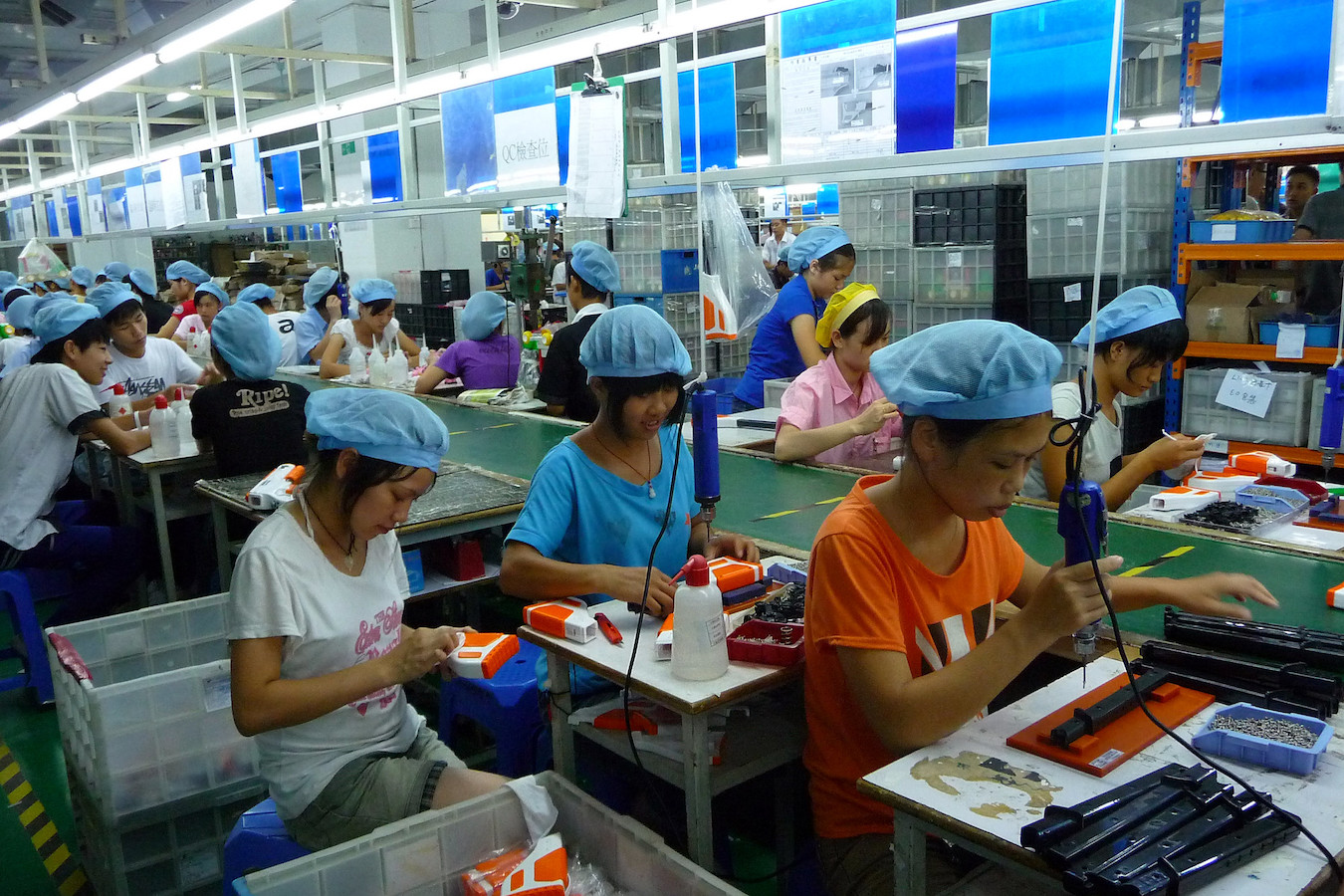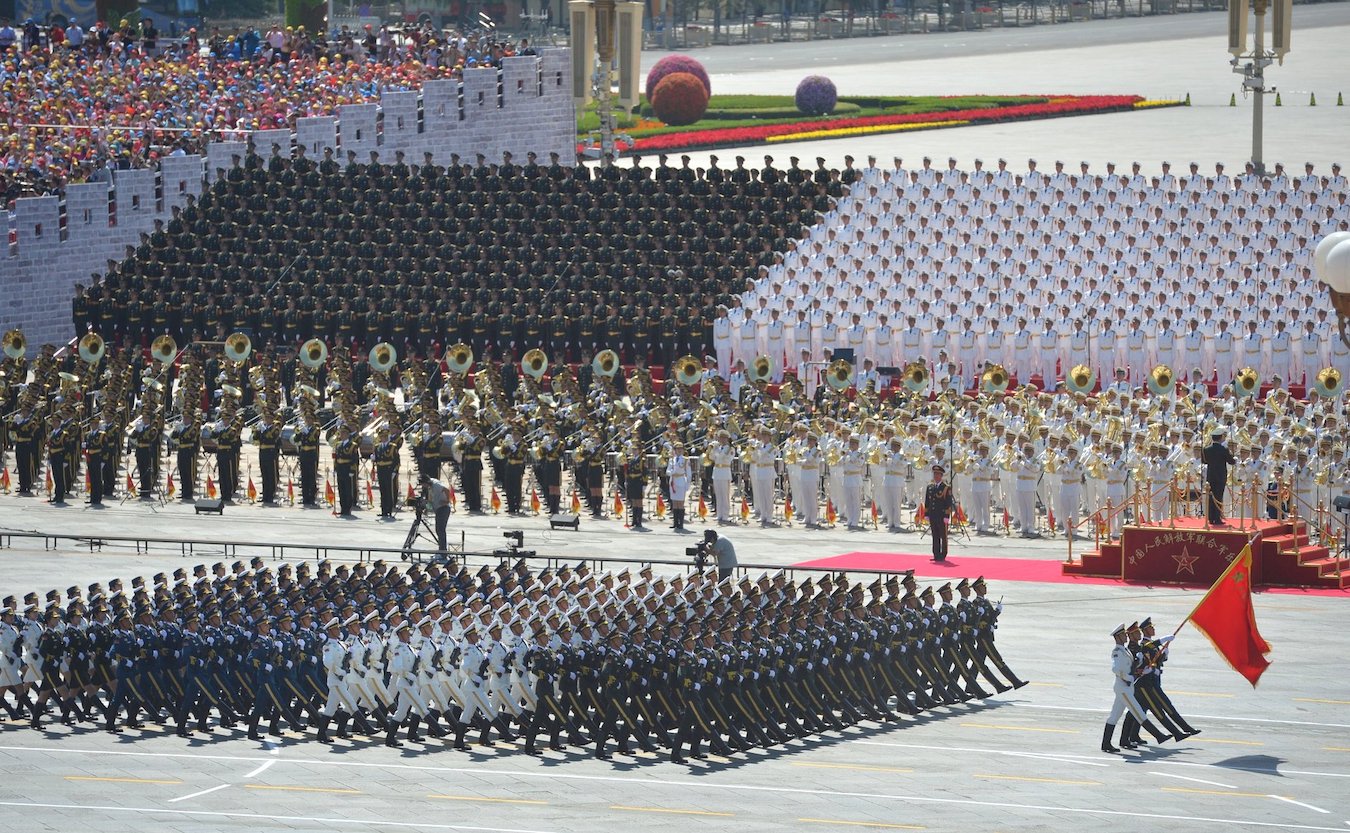by Brian Hioe
語言:
English
Photo Credit: PXHere/CC0 Public Domain
FRIENDS OF SOCIALIST CHINA’S book launch for leading figure Carlos Martinez’s new book, The East is Still Red, proved to be an occasion for a collection of mostly Western leftists to once again illustrate their idealistic projection onto China. The event took place on August 13, 2023. In particular, the event was primarily focused on defending China from the charge that is imperialistic, while calling for uncritical support for China as continuing to advance the cause of socialist revolution.
The book launch, which ran for approximately two hours, was moderated by Radhika Desai. Martinez was first to speak. Martinez sought to defend China from the charge of being imperialistic by suggesting that if China was condemned as imperialistic for its actions, all countries would be imperialistic. Martinez denied that competition between the US and China is inter-imperialist, suggesting that there is no comparison between the two, seeing as the US has bases the world over. Instead, Martinez argued that China does not trample on other countries the way the US does or seeks to economically profit from them. Martinez likewise claimed that China had no capitalist class the way the US or Western countries do.
YouTube video of the event
This line of argumentation was echoed by the next speaker, Ben Chacko. Chacko’s line of argumentation largely revolved around the view that the US could not outcompete China’s economic productivity, as a result of which it resorted to unfair means to try and undercut it, including allegations that Chinese technology was malevolent or could otherwise sabotage Western competition.
China Daily reporter Chen Weihua was the third speaker. Chen proved the only speaker on the panel actually from China. In his comments, Chen focused on praising Martinez’s book. While anecdotally suggesting that he knew the real China as a Chinese person, to dismiss Western criticisms of China, Chen otherwise spoke about how large China was and how the challenges of governing China were much larger than the West–so could not be understood by Westerners.
The fourth speaker was Amanda Yee. Yee focused on what she termed to be the information war against China, suggesting that the US was targeting critical views by requiring Chinese and Russian media outlets to register with the government. Yee argued that this did not occur, on the other hand, with pro-Israeli media, the BBC, or other institutions, suggesting that this shows how the US government is seeking to hone in specifically on views that undermine its own propaganda efforts.
The fifth speaker was Dan Kovalik. Kovalik’s comments largely consisted of talking about how the worldview of Chinese–always referred to as “them”–was a perspective of the long-term and so in this way, beyond Westerners. This included regurgitating the often-repeated anecdote that Zhou Enlai–when asked about the French Revolution and his verdict on it–replied that it was too soon to know–never mind that Zhou may have misunderstood this comment in translation and believed the question was about the events of France in the 1970s. Kovalik further touted China’s achievements in fighting COVID-19 by distributing vaccines worldwide.
Next, Sara Flounders spoke. Flounders’ comments were to depict the US as the only aggressor, in raising provocations in the Taiwan Straits, South China Seas, and elsewhere. Flounders likewise suggested that China’s working class was larger than the Western world combined, then pointing to the size of its Communist Party to suggest the paramount importance of class struggle in China. Flounders insisted that the National Endowment for Democracy (NED) was funding sports, culture, and entertainment in the US in order to promote negative views of China.
 Photo credit: Chris/Flickr/CC BY-NC 2.0
Photo credit: Chris/Flickr/CC BY-NC 2.0
The last speaker, then, was Charles Xu, speaking on behalf of Qiao Collective. Xu’s comments articulated China as having not deviated from the course of socialism in the course of the Deng period. Xu anecdotally claimed that enthusiasm from people he met who learned he was of Chinese while traveling in Latin America indicated China’s support of the Global South.
Bizarrely, Xu claimed that his parents being able to travel to America was because of the successes of Maoism. Nevertheless, Xu claimed that some members of the diaspora had become infected by the American Dream, inclusive of why family members and relatives sometimes had critical views of China, or why members of the diaspora would dismiss the socialist projects of their cultural mother country.
As is a recurring theme at tankie forums, the speakers at the book launch largely seemed unwilling to accept any break in continuity between the Deng and Mao periods, seeing all of modern Chinese history as a continuous unbroken march toward socialism. Though Martinez made a reference near the end of the forum to the fact that China does, in fact, have billionaires, he claimed that, unlike the US, billionaires were not in charge of the government. But of course, the contemporary CCP is made up of wealthy princelings who are descended from the first generation of party officials, such that the rich and privileged have been termed as the “Zhao family” that rules through the state by members of the Chinese working class.
Likewise, speakers seemed largely to perceive socialism as a project shared between all nominally socialist countries, with no interruption or deviation. The Sino-Soviet split was brought up once by Martinez near the end of the forum, but otherwise the Soviet experiment was framed as having the same aims as the Chinese socialist project, and there were few explanations ventured by any of the speakers as to why they went into conflict during the Sino-Soviet Split. The fact that China has not fought a war in forty years was brought up, but it was only mentioned in passing that the last war it fought was with Vietnam, another nominally socialist power.
Yet, in this way, speakers largely framed China in familiar tropes about superior productivity going back to leftist idealization of the Soviet Union during the Cold War–framing Communist countries as able to outproduce the West and, in that way, a superior system that the West had to resort to underhanded tricks to undermine. This was most visible in Chacko’s comments. It was never brought up by the speakers as to why the Soviet Union collapsed if it was apparently so inherently superior to the Western system.
Indeed, speakers at several times advocated cooperation between the US and China on climate change. Some allowances were made for issues of pollution in China, but this was hand-waved away as due to manufacturing for Western companies, though it obviously shows the presence of domestic inequalities if China is willing to destroy the health of its people and its natural environment to produce for Western companies.
 Chinese military parade. Photo credit: Kremlin/Flickr/CC BY 4.0
Chinese military parade. Photo credit: Kremlin/Flickr/CC BY 4.0
And one notes Kovalik held highly Orientalist views of China, while Chen Weihua resorted to self-Orientalism in his comments. This dovetailed awkwardly with Xu’s comments as representing Qiao Collective, in that Xu felt compelled to try and explain his family’s presence in the US despite the supremacy of the Chinese system should suggest that they never should have wanted to leave. Xu was also rooting around for an explanation as to why some diaspora left China and are highly critical of the Chinese government.
Both Xu and Yee sought to dismiss reports of China funding projects to improve its image abroad as being imperialist propaganda, from those paid off to do so by imperialist interests, such as with the New York Times, Daily Beast, Atlantic Council, or NED. This was framed as part of the “new McCarthyism.” Nevertheless, if in their worldview, the US engages in such behavior, one wonders why they dismiss that China might also do the same. If China has as much resources as they seem to think it has and is genuinely committed to the project of advancing socialism internationally, it is hard to explain why China would not, in fact, just sit out efforts at expanding global influence. So much for the world revolution.
Tankies and their ilk continue to project their fantasies onto China, then. This all proves deeply ironic, seeing as China is one of the most unequal societies in the world. But this worldview should not surprise at this point.

